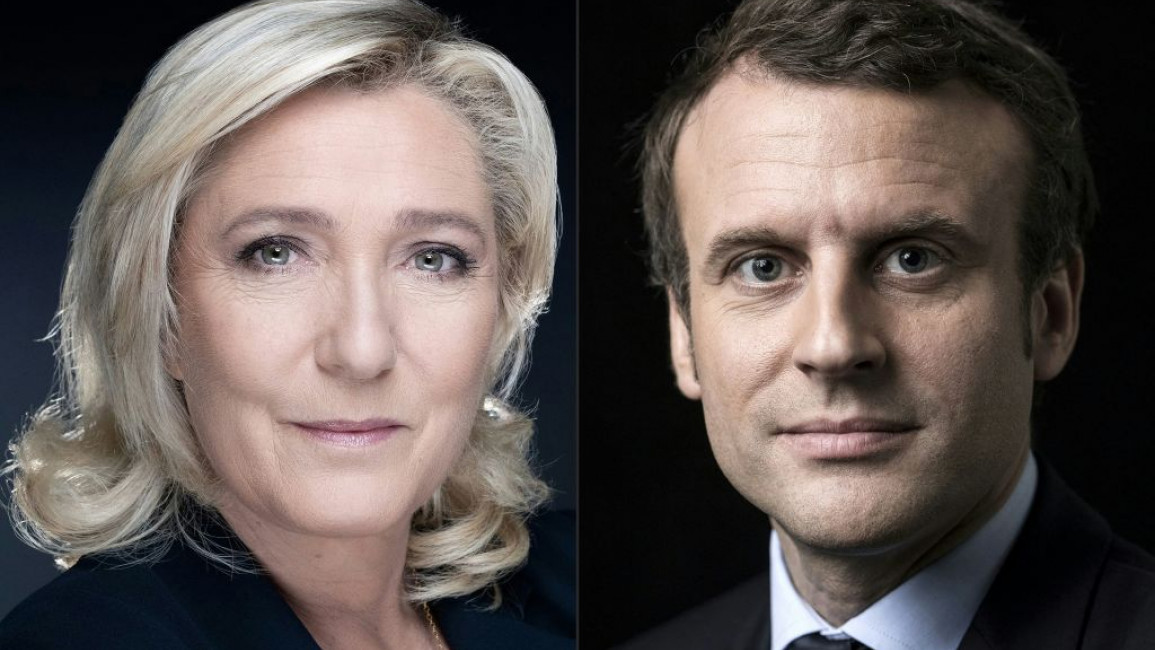Macron and Le Pen to fight for French presidency, again
Incumbent French president Emmanuel Macron will face far-right leader Marine Le Pen in the second round of the French presidential election, which will be held on April 24.
The two top candidates were announced on Sunday night after a tense and very tight first-round election that opposed twelve candidates.
With 23.4 percent of the votes, Le Pen closely follows Macron (27.6 percent) and came in as the second most popular candidate by a margin of merely 1.45 percent ahead of Jean-Luc Mélenchon (21.95 percent), the leader of the far-left.
In the French electoral system, only the two top candidates proceed to the second round, where the one who earns a majority of votes will be declared president.
Macron already faced Le Pen in the presidential runoff five years ago and defeated her by an overwhelming two-thirds of votes.
Yet all opinion polls show that Le Pen is much closer this time to a potential win. Macron is projected to win by only 51 to 54 percent of votes, and could lose in case of high abstention, particularly on the left.
The defeated Mélenchon has called on his supporters to ensure "not a single vote goes to Le Pen," without explicitly telling them to vote for Macron.
The duel between Macron and Le Pen started on Monday.
The candidates have two weeks to rally supporters before the second round on Sunday, April 24.
Macron, who presents himself as a centrist and pro-European but has faced growing popular backlash over his benefits-cutting policies and plans to reform retirement, is heading to an economically depressed area of northern France where many voters chose Le Pen.
Meanwhile, Le Pen’s National Rally officials will meet Monday to plan a strategy for the second round.
Le Pen wants to roll back some rights for Muslims, banning them from wearing headscarves in public, and drastically reduce immigration from outside Europe.
Macron has accused Le Pen of pushing a dangerous manifesto of racist, ruinous policies and said his project would protect all religions and the freedom "to believe, or not".
However, he has also pushed for controversial legislation targeting France's Muslim minority during his mandate and has taken a hard stance on migration.
The incumbent president improved on his first-round showing in 2017, despite his presidency being rocked by the yellow vest protest movement over perceived economic injustice, the pandemic and Russia’s war in Ukraine.
Meanwhile, Le Pen hopes to capitalize on anger at Macron over policies seen as favouring the rich.
The first-round election took place on Sunday across France, French oversea territories and French embassies across the world - with the exception of Shanghai, where French citizens were unable to vote in their embassy due to strict lockdown measures imposed by Chinese authorities.
The election outcome will have wide international influence as Europe struggles to contain the havoc wreaked by that war.
Macron has strongly backed European Union sanctions on Russia while Le Pen has worried about their impact on French living standards. Macron also is a firm supporter of NATO and of close collaboration among the EU 27 members.


![Minnesota Tim Walz is working to court Muslim voters. [Getty]](/sites/default/files/styles/image_684x385/public/2169747529.jpeg?h=a5f2f23a&itok=b63Wif2V)




![Debris near Rafic Hariri International Airport [Getty]](/sites/default/files/styles/image_330x185/public/2176162423.jpeg?h=a5f2f23a&itok=MCSK9mkM)
![An Israeli air strike on Jabalia killed teenage journalist Hassan Hamad [Screengrab/X]](/sites/default/files/styles/image_330x185/public/2024-10/hassan%20hamad1.jpg?h=c12e0b96&itok=Rd_dyCVp)
